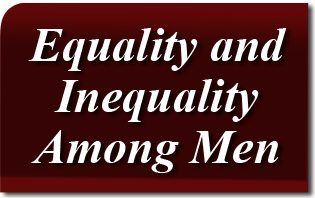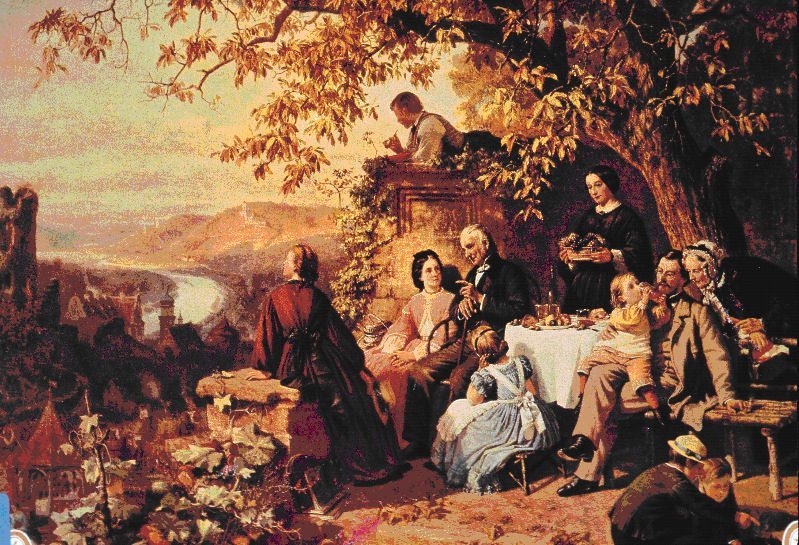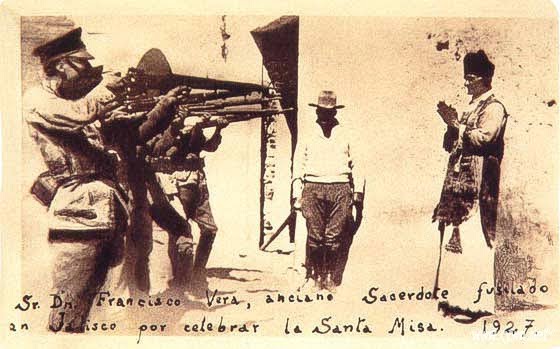 A. Inequality also Exists Among Men
A. Inequality also Exists Among Men
The observation that inequality exists in all the domains of Creation leads us to deduce that it also exists among men.
Indeed, human beings are different from the tip of their toes to the summit of their souls.
Fingerprints are unique to each individual and do not change with time. Even identical twins (who share the same DNA) do not have identical fingerprints. Scientists estimate that the chances of two individuals appearing with the same fingerprint are 1 in 64 billion.
Differences in intelligence, temperament, talent, mentality, etc. are even greater than physical inequalities.
Saint Thomas explains that this diversity in characteristics is what conveys a more perfect image of God. In their ensemble, much more than individually, men form a beautiful mosaic reflecting the perfections of their Creator.
B. Essential Equality, Accidental Inequality
However, that does not mean that inequality among men is absolute and from every standpoint.
1. Essential Equality
In spite of all these inequalities, there is a fundamental equality among men: they all are called “to the same eminent dignity as children of God, all having the same end; and everyone will be judged by the same law and receive the punish or reward he deserves” (Leo XIII, Encyclical Quod Apostolici Muneris, December 28, 1878).
Thus, men are fundamentally equal because they have the same origin, nature, and end.
a) Equality of Origin:
All men were created by the same God to His image and likeness.
b) Equality of Nature:
All men have the same nature, a physical and mortal body and a spiritual and immortal soul, redeemed by Our Lord Jesus Christ.
c) Equality of Destiny:
All are equally subject to death; all have been called to deserve heaven, just as all must fear hell.
2. Accidental Inequality
Along with this essential equality there are, however, accidental inequalities, that is to say, those which come from accidents.
Accidents are qualities that exist in a being but are not necessary for it to be what it is. An accident is something “added” to a thing which is not part of its essence. In this sense, accident is opposed to substance: substance is absolute and necessary for a thing to be what it is, whereas an accident is relative and contingent.
Take hair color for example, hair remains hair regardless of whether it is red, black, yellow or white. Another is the shape of a stone; it will always be a stone regardless of whether it is round or square, smooth or rough and a rough diamond is as much a diamond as a hewn diamond. The temperature of water does not change its essence as it will be water whether it is hot, cold, or in a solid, liquid or gaseous state and ice and vapor are still water.

regardless of whether it is round or square, smooth
or rough, etc. (a rough diamond is as much a
diamond as a hewn diamond).
A chair can be made of wood, metal or plastic but those qualities would be an accident. The material used to make a chair is accidental to its being “chair.” A chair is always a chair, no matter what it is made of.
Men were all created by God to His image and likeness, but each must reflect one of the divine perfections in a particular way. Thus, each person contributes something to form a more perfect image of God. In this sense, every man is unique and the image of God would be less perfect if he did not exist. Therefore, everyone has a particular value and a special dignity even if he is the last man in the social scale.
This special reflection of the divine image is provided by accidents.
3. Equal Natural Rights, Unequal Accidental Rights
Men’s equal nature generates equal natural rights for all.
Their inequality in certain accidents produces unequal accidental rights.
In other words, the rights that come from the simple fact that they are men are equal for all. An example of these would be the right to life, honor, sufficient living conditions; the right to work, own property, have a family, and especially to know and practice the true Religion. Inequalities that violate these rights are contrary to the order of Providence.
However, the accidental inequalities arising from accidents such as virtue, talent, family, tradition etc. are just and according to the order of the universe and not all accidents generate rights.
Some accidents are, so to speak, “peripheral” and do not originate rights. Other accidents, by contrast, are more relevant and thus become a source of rights.
Accidents like being tall or short, fat or thin, blond or dark-haired do not add anything important to a man and therefore, they do not constitute a source of rights.

Likewise, being a father, the head of a family, is also an accident. But no one can deny that such an accident such as paternity, does not give a man rights both over his children and vis-à-vis society, which unmarried people do not have. An example of this would be tax exemption or tax breaks in some countries given to families.
Fatherhood adds to a man’s condition something that makes him worthy of greater respect and consideration, in that he has become as it were a “partner” in God’s work of creation by begetting new life. Moreover, parental authority participates in divine authority. Therefore, the accidental quality of paternity gives parents a right to be obeyed by their children and respected by society.
Similarly, government officials whether it be a monarchy, aristocracy or democracy, as well as teachers, employers and all those invested with lawful authority, participate in divine authority and are therefore entitled to be obeyed and honored accordingly.
C. Equality and Inequality in Society
Accidental inequalities among individuals give rise to inequality in social conditions.
Indeed, social life requires the existence of a very varied organism with highly diverse functions, which in turn requires a diversity of natural aptitudes, skills or abilities. Now then, diversity of conditions is the main reason why men engage in various functions, applying their respective abilities. Hence it is normal for people with a higher status to address the more important issues, for which they are better prepared; and for those in lesser stations, to deal with things that are closer to them.
Not everyone can be noble, otherwise who would plow the fields? If all were farmers, who would defend society? If all were in the military, who would look after commerce? And so on.
According to Church doctrine, Christian society must be formed by proportionately unequal classes that attain their own good and the common good in a mutual and harmonious cooperation. So, not only men, but also human society as such, will be an image of God.
D. The Fallacy of Egalitarianism
The revolutionary liberal or socialist solution to excessive and disproportionate inequality is to establish equality, abolishing the social scale.
One must ask what is this equality all about? It is a purely mathematical equality that leads to a radical, absolute and unlimited individualism; an individualism where only numbers are seen as worthwhile and quality is disregarded. We become mere digits on statistical charts, Social Security Numbers.
At that point, the State crushes the person. Thus, egalitarianism leads to total State control of the individual and a complete destruction of society.

